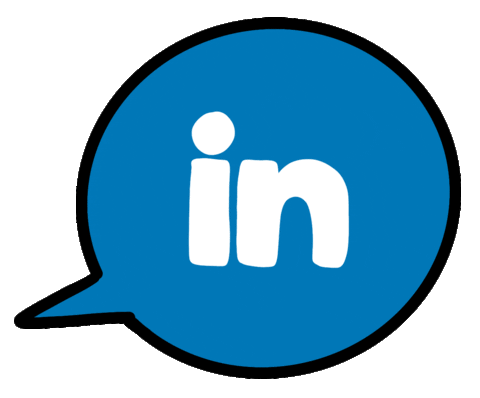Our Role in the Circular Economy
- Natasha Tsakos
- Dec 14, 2022
- 8 min read
Updated: Jun 8, 2023
I am here today as an instrument of self analysis and transparency.
I am so excited to be here! In fact I am excited and terrified. Excited, because I get to be here in Copenhagen with you and learn about what I care so much for: the environment. And terrified because of what I just read the other day. Who here is wearing a pair of jeans or owns a pair of jeans? Did you know that it takes 6,000 litters of water to grow the cotton to make just one pair? 115 of you raised your hands. That's 690,000 liters of water, that we just consumed, in this room, with our pants.
But why I am here. What do I bring to the tabIe? At first I thought I’d talk to you about I am working on and how the convergence of Arts and Technology will redefine the way we experience life, and how it could change the world! Then I realized not today, not here. That is not the point. The truth is: I could be a lawyer, a clerk, the CEO of a fortune 500 company, a celebrity. My title is irrelevant. I am here today as our common human denominator. Because we are biologically made of the same stuff and we share the same address. And until we can all purchase our own private planet thanks to Elon Musk, we all cohabit one big apartment. This auditorium, the sidewalk, the streets, your backyard, my balcony, same place really. And some of you may think the world is flat, triangular, pumpkin shaped! It’s still the same place. A volcanic eruption, for example, pumps so much sulfur into the atmosphere that it can drop the world’s temperature. The earthquake that happened in Japan in 2011, shifted the earth’s axis, shortening the length of our days. We share the same floor, air conditioning and water unit. What happens in your ocean, affects my air, your land, their food, our health, we are part of one system.
Now, let’s zoom into the room were you grew up in when you were a kid. Are you picturing it? Imagine you were still there, you couldn’t leave your room and your parents kept getting you things. You’d suffocate under a massive pile of junk. You’d die, crushed by your toys. We might even find lego pieces in your stomach and barbie legs in your nostrils. Toys, gadgets, little things that make us happy for a few hours till we get bored and move on to the next thing. Somehow, that’s become the world we’ve all agreed to live and participate in. A take, make, waste system, a linear economy. Please throw the perfectly good smartphone you bought two years and get the latest slickest for only $749.
Did you know, that we humans have produced more than 18 trillion pounds of plastics since the 1950s and put most of it in the trash, and only 10% is actually recycled. So where does the rest go? In our oceans, our land, our food, our bodies. 18 trillion pounds of plastics. That weight is equivalent to one billion elephants or 25,000 Empire State Buildings. Why is it a problem? Because our land can’t process these toxic things fast enough, if at all. The other problem: is 50 billion tons. That’s how much of the Earth’s materials and life forms we can safely use each year. Everything from wood to plastic, fish to livestock, minerals to metals: all the physical stuff that we consume. Right now, we are using about 80 billion tons each year and if we keep doing business-as-usual, growth will drive global resource use to a 180 billion tons per year by 2050. That’s 30 years from now, most of us will still be alive. But some say that’s game over.
When did business sense become more important than common sense? How did we become so disconnected, from the way our parents and grandparents taught us? When did kids started thinking that lettuce came from supermarkets?
I’ve always considered myself environmentally friendly. I recycle, I do not have car, don’t consume much, but I never applied my common sense and knowledge in concert to really examine my day to day activities.
Does anyone here go to Starbucks or coffee shops? It might not be so common in Europe, but in the US it is. There was a time in my life where I would go to Starbuck every day and work. That’s 365 cups per year if I only had 1 cup of coffee! If all Americans brought their reusable cups, or asked for porcelain mugs (they offer that, we just have to ask) we’d save 50 million cups a year.
At home, I refill my glass water bottle, I bring my reusable bag to the store. I thought I lived a plastic-free life. Until I opened my cabinets and saw: my shampoo, conditioner, body wash, face wash, face cream, five different types of cleaning products, kitchen condiments… all packaged in plastic. I offset my electricity bill with wind energy and I am proud of not having a car but I use driving services. From food delivery to the delivery of my person from point A to point B. So, I do have a part-time car, actually.
Enough with the pity party! Let’s take a selfie. I know a lot of people take pictures these days. Call me old school, I prefer capturing the moment by myself; but when I do take a picture, I don’t take one, I’ll take 3 or 4 of the same thing. And I’m not changing my point of view, adjusting my lens or focusing somewhere else: I take 3 or 4 of the same thing because what’s one more click? I checked: 1.8 MB of data. Turns out these 4 pictures, now worth 7.2 MB, are instantly uploaded to the cloud, and it’s not a condensed water vapor floating in the atmosphere; it’s a hundred thousand square feet long data center. If we combine all the data centers in the world: they consume one-and-a-half times as much energy as New York City per year. Love a post on instagram, share your food pic on Facebook, upload your cutest cat video: every internet activity involves huge amounts of data that needs to be stored somewhere.
Everything takes energy, from our digital to our material consumption.
So I am not perfect and opening up about my short comings publicly is not easy. But if we don’t acknowledge the problem, if we don’t acknowledge our hypocrisy, nothing will change. I am here today as an instrument of self analysis and transparency… Because I know there are millions of people just like me. Who care deeply about the environment, who want to do good, yet every day fall through the traps of their own routine, the seduction of subdued marketing, the temptation of digital impulse…. I have meetings and lunches with those people, attend their conferences. They consider themselves social-impact driven, just like me, yet their day to day actions don’t always reflect their belief system. Why is that? We are too busy with nonsense, that's what. Too busy paying attention to the wrong things. And in a world where our desires can manifest almost instantly, there is literally no time to consider the implications of our actions. Besides, we’ve got rent to pay, a family to feed, an inbox to respond to, a career to reach, this hundred year old system has kept us very busy, working for it and paying it, while never questioning it. And this needs to stop.
I used to think technology would save us. That some brilliant entrepreneur will come up with a radical idea that will counteract or offset my, at times, bad behavior. And it’s true: while the speed and computational prowess of technology coupled with human’s ingenuity promises extraordinary breakthroughs, as it does already, businesses still need to implement these innovations, and businesses thrive if there is a demand for it. And that’s on us. Because we can only demand it if our habits change. So it’s this technology (our minds) we need to hack first.
I know the problem seems huge at scale, and it feels like we are powerless in front of these numbers. In the US alone, we throw 2.5 million plastic bottles every hour, 50 million plastic toothbrushes every day, 100 billion plastic bags, every year. 25 trillion pieces of plastic debris in our oceans… But if we ever questioned the power of individual action, question no more. Because these numbers reflect of our independent actions happening in unison. As original as we think we are, are algorithms are ironically similar: we all eat, drink, dress, maintain our places, our faces, have sex. Our primal needs are the same. So if all us eight billion Humans and counting, acted together doing less of the harmful things, and doing and demanding more of the good things: radical change would occur.
Yes, we the people have power. And we need help.
We need solutions. We don’t want to hear what the problem is. But a problem isn’t a problem if we have an answer to it. And today we have an answer. It’s a system where we consumers: refuse, reduce, reuse, refill, recycle. And as producers, it’s a system where waste does not exist, because products are designed and optimized for a cycle of disassembly and reuse. Now we don’t have to be an exert in environmental sciences or economics to know that this makes sense.
I don’t know about you, but I am tired of feeling guilty and hypocritical, and while I can do a lot, I believe governments and businesses need to help us get there too. Governments should implement better sustainable policies and practices: after all, the health of this planet should be a fundamental human right. And Businesses should produce in ways that don’t harm us or the environment. Did you know that 9 out of 10 people today say they would recycle if it were easier. We are here. We are ready! It’s time for governments and businesses to be role models, design think intelligently, make things sustainably and reach us purposefully, so we can all be the best we can be.
Call it what you want for the purpose of communication, but the solution we are talking about today is not just a circular economy, it’s the right economy, the one economy, it’s the only economy we can back. It’s an economy that takes accountability for what it outputs and inputs and where we do to. It’s beautiful, it’s elegant, it’s smart, it’s sexy… It’s a triple win situation: businesses save money and do good, we save money and feel good, and this big apartment of ours gets to do what it does best: sustain us and process.
I would like invite all of you today to use your common sense and intelligence to examine your day to day activities and start with a micro change. Wether it’s using a cloth to wipe your hands instead of paper towels, which could divert billions of pounds of paper waste every year; or asking your dry cleaner to stop wrapping your clothes in plastic, or packing a bottle in your bag for your next trip to the coffee shop, or revamping your cocktail order: “A whiskey coke no straws please”. Because the one thing we know is that our small (or big!) changes in unison, will determine the future we will live or not live in.
Today, I take a pledge to do more and demand better. Will you too?
Talk Transcript at the EIB Circular Economy Conference, Copenhagen, Denmark, October 25th, 2018
PRACTICAL LINKS:
QUOTES
"What happens in your ocean, affects my air, your land, their food, our health, we are part of one system."
"When did business sense become more important than common sense?"
"I used to think technology would save us. That some brilliant entrepreneur will come up with a radical idea that will counteract or offset my, at times, bad behavior. And while the speed and computational prowess of technology coupled with human’s ingenuity promises extraordinary breakthroughs, businesses still need to implement these innovations, and businesses thrive if there is a demand for it. And that’s on us. Because we can only demand it if our habits change."






Невозможно представить наш день без новостей, они сейчас составляют большую часть всего нашего информационного пространства, именно новости помогают нам быть в курсе событий. Вместе с этим, надо иметь качественный новостной портал, который сможет предоставить все необходимые новости. Благодаря новостному порталу Delo.ua, я смог больше узнать о новостях криптовалют https://delo.ua/ru/tags/kriptovaljuta/, что на сегодняшний день очень важно и актуально. Та работа, которую выполняет delo.ua, позволяет мне всегда находиться в информационной среде, а также узнавать о новых сферах деятельности, как это было с криптовалютой. В целом, их статьи, материалы и подход к работе, можно считать лучшим в стране, и это мнение полностью объективно.